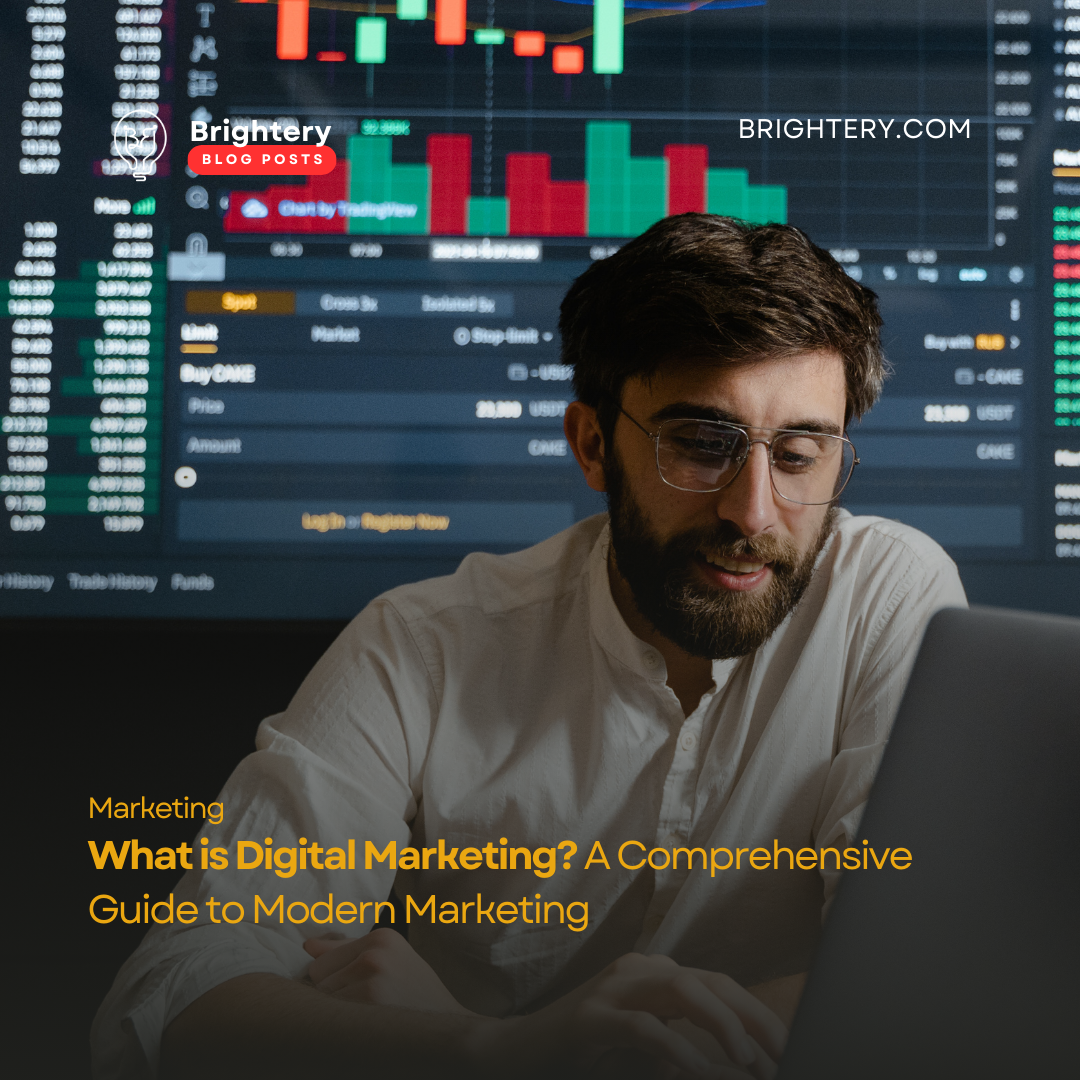What is Digital Marketing? A Comprehensive Guide to Modern Marketing
In today's world, nearly every interaction, from purchasing to communicating, happens online. This shift has led to the rise of digital marketing—a powerful way to connect businesses with customers where they spend much of their time: the internet. But what exactly is digital marketing, and why does it matter so much?

Why Digital Marketing Matters
Digital marketing enables businesses to reach a global audience, build brand awareness, and engage potential customers directly. It's a versatile approach that can be scaled to fit any business size or industry, making it essential for survival and growth in our digital-first world.
Understanding Key Digital Marketing Components
Digital marketing encompasses various techniques and strategies to promote a product or service. Here’s a closer look at its core components:
SEO (Search Engine Optimization)
SEO is all about optimizing a website to rank higher on search engines like Google. Businesses can attract more organic traffic by using keywords, creating high-quality content, and focusing on user experience.
Digital Marketing Agencies in Dubai: A Comprehensive Guide
Content Marketing
Content marketing focuses on creating valuable, relevant content to attract and retain an audience. This could include blog posts, videos, infographics, and more.
Social Media Marketing
Platforms like Facebook, Instagram, Twitter, and LinkedIn allow businesses to reach and interact with their target audience. Social media marketing involves creating engaging content that drives traffic and builds a loyal customer base.
Email Marketing
Email remains one of the most effective ways to communicate with customers. By delivering personalized messages, businesses can nurture leads, boost conversions, and maintain customer loyalty.
Pay-Per-Click (PPC) Advertising
PPC is a model of internet marketing where advertisers pay each time their ad is clicked. Google Ads and social media ads are popular forms of PPC advertising, which can bring in immediate traffic and sales.
How Digital Marketing Differs from Traditional Marketing
Digital marketing differs from traditional marketing (such as print, radio, and television ads) by allowing direct interaction with consumers and the ability to track campaign performance in real time. This makes digital marketing more efficient, measurable, and adaptable.
Dubai Marketing Agency: A Guide to Finding the Right Marketing Partner for Your Business
Advantages of Digital Marketing
Digital marketing offers several key benefits:
- Global Reach: Connects businesses with audiences worldwide.
- Cost Efficiency: Often more affordable than traditional methods.
- Measurable Results: Track performance and ROI with data-driven insights.
- Personalization: Tailor marketing messages to specific audiences.
- Higher Engagement: Enables two-way communication with customers.
The Role of Data in Digital Marketing
Data is at the heart of digital marketing. By analyzing customer behavior, businesses can make informed decisions, refine strategies, and improve campaign performance.
Creating a Digital Marketing Strategy
A solid digital marketing strategy outlines a business’s goals and the steps to achieve them. It involves:
- Identifying target audiences.
- Choosing the right platforms.
- Setting clear objectives.
- Developing a content plan.
- Measuring and optimizing campaigns.
Digital Marketing Channels
Digital marketing channels are categorized as:
Owned Media
Owned media includes all digital assets a business controls, such as websites, blogs, and social media accounts.
Earned Media
Earned media involves third-party mentions and shares, such as customer reviews, media coverage, and social media shares.
Paid Media
Paid media includes advertising on search engines, social media, and other platforms to increase visibility.
Tools and Technologies Used in Digital Marketing
Tools like Google Analytics, SEMrush, Mailchimp, and HubSpot help businesses streamline campaigns, analyze performance, and manage customer relationships effectively.
Challenges in Digital Marketing
While digital marketing has many advantages, it also comes with challenges, such as:
- Intense Competition: Many brands are competing for attention.
- Keeping Up with Trends: Digital marketing evolves quickly.
- Data Privacy Concerns: Companies must prioritize customer data security.
How to Measure Digital Marketing Success
Key performance indicators (KPIs) such as website traffic, conversion rate, bounce rate, and customer lifetime value (CLV) help gauge the effectiveness of digital marketing campaigns.
Emerging Trends in Digital Marketing
Emerging trends like AI, voice search, and influencer marketing are shaping the future of digital marketing. Staying updated on these trends can give businesses a competitive edge.
The Importance of Mobile Optimization
With mobile devices accounting for most internet usage, optimizing websites and ads for mobile users is essential for success.
Digital Marketing for Small Businesses
Digital marketing is particularly beneficial for small businesses, as it provides a level playing field to compete with larger companies, attract local customers, and build a brand.
Digital Marketing Agency in Dubai: A Comprehensive Guide to Choosing the Right Partner
Conclusion
Digital marketing is a versatile and impactful way to grow a business in the digital age. By understanding its components, leveraging data, and adapting to trends, companies can create successful campaigns that engage customers and drive growth.
Frequently Asked Questions
1. What is digital marketing?
Digital marketing is the practice of promoting products or services using digital channels like websites, social media, email, and search engines.
2. Why is digital marketing important?
Digital marketing is crucial as it allows businesses to reach a broad audience, measure results in real time, and engage with customers more effectively than traditional marketing.
3. What are some key digital marketing tools?
Popular tools include Google Analytics, SEMrush, Mailchimp, and social media management platforms like Hootsuite.
4. How do I create a digital marketing strategy?
Start by defining your target audience, setting clear objectives, choosing the right platforms, creating valuable content, and regularly measuring performance.
5. Is digital marketing suitable for small businesses?
Yes, digital marketing is ideal for small businesses as it’s cost-effective, measurable, and allows them to compete with larger brands.

{{comments.length}} Comments
{{comment.name}} · {{comment.created}}
{{sc.name}} · {{sc.created}}
Post your comment